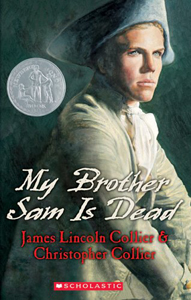Articles%20%26%20opinion
By Karen KlocknerI recently discovered a paper I wrote in fourth grade about the history of the alphabet. I loved the letter forms, the symbols, the idea of historical change reflected in the characters. So it amused me to think that years later, as a graduate student in Boston, the...
“Why is there no YA equivalent to the Newbery Medal?” When I asked that question fifteen years ago (School Library Journal, December 1983), it was hardly its first hearing. As far back as 1962, the Young Adult Services Division (now the Young Adult Library Services Association) of ALA had proposed...
On a July morning in 1920, a strange, hybrid vehicle headed north out of Boston for a summer’s tour of New England towns and villages, for all the world like a traveling circus or a band of puppeteers. Aboard were a pair of young women with a working knowledge, between...
The first few issues of the Guide featured editorials by founding editor, Ann A. Flowers, who commented on the state of the field from her unique vantage point of having seen an entire publishing season's worth of books. Here are three samples from 1990 and 1991. A New and...
The title for this article came from my daughter, Elizabeth. One day last year when I picked her up from kindergarten, she came rushing to me with a scrunched-up, angry face. Before she even said hello, she plopped down on the hallway floor and opened the George and Martha book...
By Peter D. SierutaThe successful publication of Dear Genius: The Letters of Ursula Nordstrom, collected and edited by Leonard S. Marcus and published by HarperCollins, has sent researchers on a veritable panty raid of publishers' archives in hopes of illuminating another era of literary history through the correspondence of a...
I expect we can all agree that historical fiction should be good fiction and good history. If we leap over the first briar patch by calling good fiction an “interesting narrative with well-developed characters,” we are still left with the question of what is good history. Alas, there are nearly...
My on-going if peripheral interest in children and electronic culture snapped into sharp focus one morning while listening to the news. One of our politicians blithely announced that school libraries and librarians were now unnecessary because children can find everything they need on the 'Net. Confronted by this statement, I...
By Mary M. Burns and Ann A. FlowersSuddenly, literacy is a hot topic. While definitions may vary, there is general agreement that it’s a good thing, and the more of it, the better. The problem seems to be discovering how to nurture it. Because Americans incline toward Puritanism when faced...
7,072 articles
ALREADY A SUBSCRIBER? LOG IN
We are currently offering this content for free. Sign up now to activate your personal profile, where you can save articles for future viewing.







